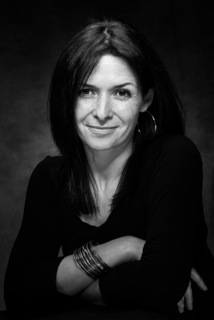How would you describe The Eidolon?
A Sci-Fi thriller that explores the nature of reality through an edge-of-the-seat story line featuring dark matter, the CERN laboratory, and the boundary between the living and the dead.
That’s my publisher’s description, and it’s better than the one I came up with.
Are there any SF or other genre authors who have particularly influenced your writing or interests?
I like stories that explore big concepts and tap into the magic of the world. By that I mean stories that take something ethereal and make it tangible. Scarlett Thomas–The End of Mr Y is one of my favourites. She explores some intriguing ideas and I like her frank style. Philip Pullman’s His Dark Materials and J K Rowling’s Harry Potter for creating enticing parallel worlds. Paolo Coelho’s The Alchemist for its simplicity and power. And if you extend the term author to screenwriter, George Lucas, who took Joseph Campbell’s premise and ran with it.
To be honest, I read mostly non-fiction. I have a stack of books on conventional science–such as Brian Greene’s Fabric of the Cosmos, which I have to re-read every so often, as it’s such a head-bender. Anyone who uses Bart Simpson to describe relativity works for me. Then I have a stack of books on beliefs systems–Taoism, Buddhism, philosophy and the like.
And then I have another stack that explores a bit of both – such as Jonah Lehrer, or my current favourite, Rupert Sheldrake’s The Science Delusion, which delves into the philosophy of science and proposes some fascinating concepts.
Your name is almost certainly new to most Interzone readers; have you had any fiction published before The Eidolon?
I wrote a children’s fantasy novel about ten years ago. It was a success in that it taught me the staying power to complete a novel, but it would need a fair bit of work before I’d share with anyone! Other than that, I’ve had some medical papers published, but they’re not that gripping.
So this is very much a debut, albeit an extremely confident one. How did you get the novel published? Did you submit it directly to Solaris, or did you go through an agent?
I spent a bit of time thinking about what it would feel like to find the right agent and publisher before I submitted anything; I tend to find things work out better this way. So I went through the Writers’ and Artists’ Yearbook and found five agents who might be interested. There were some positive responses and I had representation within a week. After some more editing, Solaris took it up.
That’s pretty remarkable, but not entirely unsurprising as one of the aspects of the book which impresses is how it seems really “grounded” in science and experience. How much research did you need to do for the book?
It’s tricky to say. The research happened in conjunction with the writing; in fact, I was still researching when it came to the final edit. I visited CERN a few years ago, just as they were preparing for the Large Hadron Collidor warm up. It gave me a sense of what an unbelievable endeavor it is, and an illustration of just how powerful our drive is to understand things. It’s a huge feat of cooperation crossing political, geographical and specialist boundaries. I spent a bit of time in Geneva to get a feel for writing the scenes that are set there. And I’ve done a fair amount of travelling and trekking, so I drew on those experiences for the Tibetan scenes at the start of the book. The medical scenes were easy to write, as that’s my day job!
As a female author in what could be said to be a male-dominated field, was it a deliberate decision to go with a male, rather than female, protagonist in the form of Robert Strong?
It didn’t cross my mind. I didn’t set out to write a science fiction story–for a while I wasn’t sure which genre it really fits into. So the decision to write as a male character wasn’t calculated on the basis of who might read the story in the future. The story just came and Robert was just there. It didn’t occur to me to write as from a female point of view. I did enjoy Robert’s cynical streak, although I had to tone it down.
Everyone generally enjoys seeing their work in print for the first time; what did it feel like to see your first novel “in the flesh”?
Surreal. It was like meeting an old friend again, someone you used to spend a lot of time with. In a funny way, even though other people can read it now, it’s seems even more personal, like it’s between the story and me. I had a lot of fun writing it. If anyone else likes it, it’s a bonus.
What responses have you had to the novel so far?
It’s been great–people have been really supportive. Not having a literary background, it’s a bit of a gamble baring your soul through words, but I think people get the gist of the story and the idea behind it. There have been some good reviews and it was in the Amazon bestseller list for sci-fi thrillers a couple of weeks ago. There’s also been interest from a movie director. Perhaps the most rewarding thing is the connection it brings with other people. That’s been worth all those days locked away with the laptop.
So, what projects are you working on next?
I spoke to a few screenwriters about writing a screenplay based on The Eidolon. It’s been a film in my mind since the beginning–I could see the characters, visualise the scenes and hear the music–so it seemed like a natural step. I finished the screenplay last week, so I’m now back to writing the sequel–and drinking a lot more chai tea!
